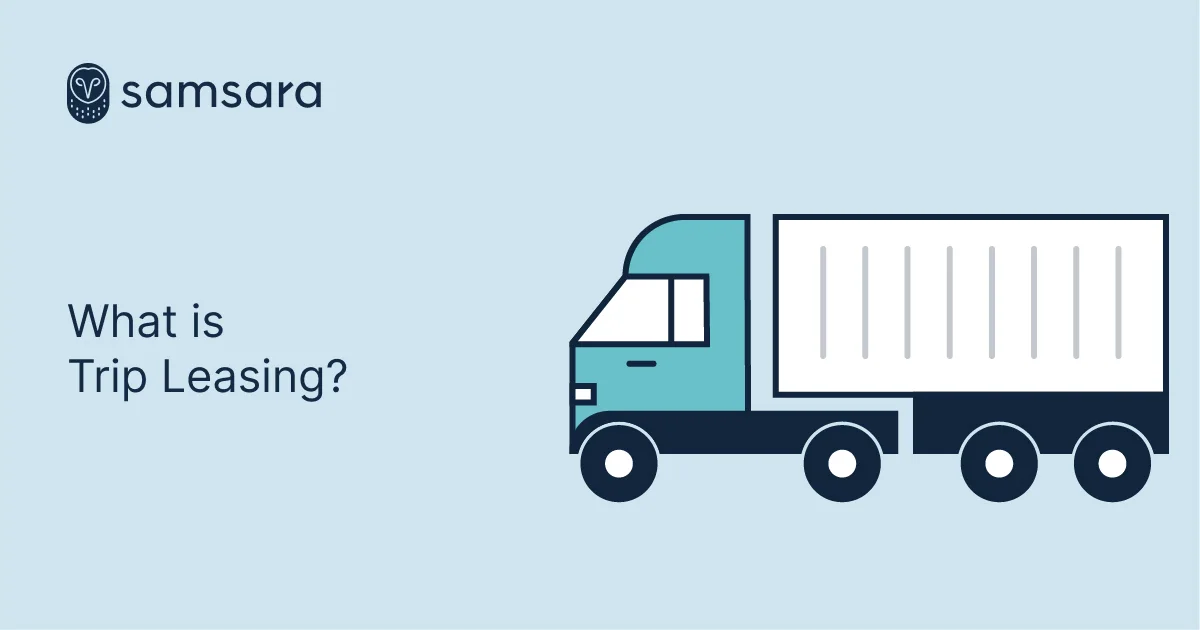What is Trip Leasing?
October 24, 2021

Get Started With Samsara
Check Our PricesKey Takeaways
Trip leasing originated from the need for a driver to return home profitably. An owner-operator (or company) leases their motor vehicle to another transportation provider for a single trip. Learn more about the practice of trip leasing and why it exists.
What is trip leasing?
Trip leasing is when an owner-operator (or company) leases their motor vehicle to another transportation provider for a single trip. Drivers may haul loads through the carrier’s operating authority or their own.
Trip leasing origins
Trip leasing a vehicle originated from the need for a driver to return home and/or profitability. Certain commodities are regulated in the U.S., and drivers need operating authority to transport these commodities. Truckers can transport exempt commodities without operating authority. (See the Federal Motor Carrier Safety Administration’s (FMCSA) composite commodity list)
However, hauling exempt commodities—such as unprocessed goods, fruits and vegetables, and items of little value—are a one-way movement. For example, drivers might haul the exempt commodities from their place of production to market points. But, there is no substantial movement of exempt commodities from the market points back to the places of production; no return loads. Generally, without a return load, hauling the exempt commodities to market is unprofitable.
Typically, only non-exempt or regulated commodity payloads are available for return load hauling. Thus, the practice of trip leasing was developed to ensure the lessor could make some money while returning home. An owner-operator without operating authority (uncertificated carrier) could offer a trip lease to another company or a certificated carrier for the return trip only. Like any other for-hire job, they could negotiate pricing and timing for each haul.
The original trucker could transport the load under the certificated carrier’s authority. Or, the certificated carrier would provide their own truck driver and the original driver rides along. Being under lease to a certificated carrier, the vehicle is eligible to haul non-exempt commodities under the lessee or shipper’s authority.
The trucking industry experienced deregulation after the Motor Carrier Act of 1980 was passed, which diminished the regulatory power of the Interstate Commerce Commission (ICC). It became much easier for owner-operators to obtain their own authority and haul regulated commodities. As a result, the practice of trip leasing has fallen into disuse.